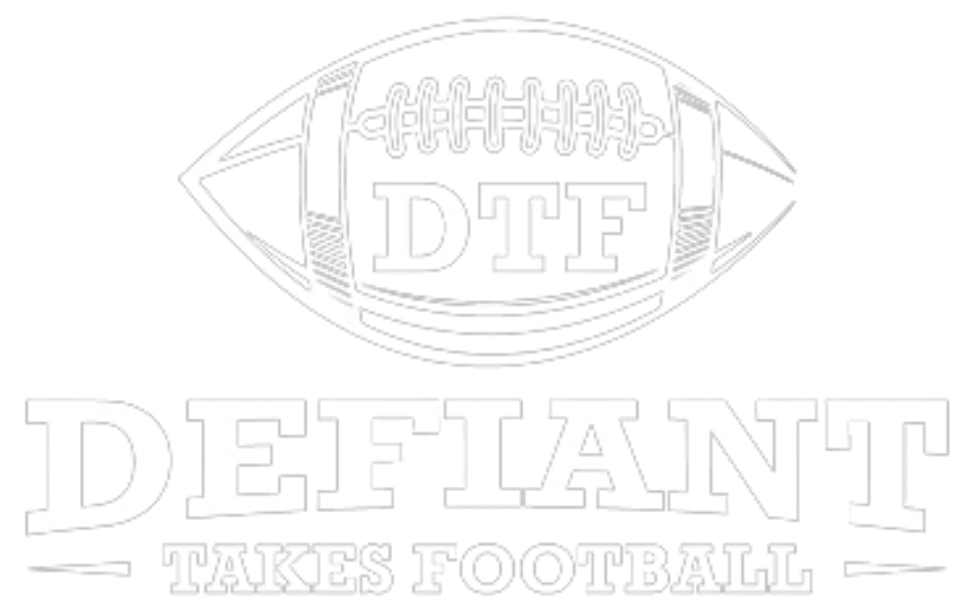The podcast market is extremely saturated – overly saturated if you ask most people. While they’ve opened doors for the everyday person to build a voice and have a platform, they’ve also lead to serious push back & burnout. Regardless, when you get the right combination of hosts, topics, & chemistry, you can’t deny the magic.
In the athletic podcast sector, you typically see current professional or retired athletes dominating the scene. The freedom to speak freely, the time afforded by not having classes/study hall, & most importantly, being able to sign production deals and monetize, have held collegiate athletes back from getting in on the action.
With NIL, which is an acronym for name, imagine & likeness, NCAA athletes have now been legally allowed to profit off their personal brand. With that freedom, we’ve seen college athletes in commercials, digital social media ads, car dealership deals, clothing brand deals, & even athletes walking in major fashion house shows. This is exposure has increased visibility, but visibility doesn’t always equal intimacy.

USC Heisman Trophy Winners Matt Leinart, Caleb Williams, former USC WR Greig Carlson -Hall of Goats; Acquired by The Story Mob
In my opinion, the beauty of great radio, television, film, writing, & podcasts is all the same. Peeling back the layers and revealing your truest self. Only when you bare parts of yourself to the public that you otherwise wouldn’t have do we get the purest form of storytelling. Some convey their stories through humor, cinematic descriptions, or a relaxed conversational recounting style.
Whether the purpose is to entertain, educate, or both: story telling at its essence comes from that place.
A month ago, The Tommy Group & YEA Networks debuted Almost Pro: USC Football. Available on YouTube and through all streaming platforms, the podcast is hosted by reigning Heisman Trophy Winner Caleb Williams & DB L Simpson. With a set of Trojan teammates as the guests, the podcast dives into a bevy of topics and peels back the layers of where these players come from, how’ve they come to be teammates (most of the featured players are transfers), and more.
The podcast is recorded in a studio setting the day after USC plays. So, on top of the amazing stories and fun conversations, you essentially get a weekly recap of where the team stands. From my perspective it almost looks therapeutic. While there’s definitely some interview aspects, it never feels quite like that. At the end of the day, it’s just teammates shooting the breeze and letting us in on it.
In just four episodes, we’ve already heard Heisman winner Caleb Williams detail many amazing stories. Some of the moments that stuck with me the most was him detailing his tedious & somewhat superstitious pregame routine, how he came to wear the infamous Adidas Gucci suit to the Heisman ceremony coming from a Nike school, & his relationship with former Oklahoma teammate now South Carolina QB Spencer Rattler.
Other stories that have drawn me in have been hearing true freshman superstar Zachariah Branch describing his first return touchdown against SJSU, Georgia State transfer Jamil Muhammad chronicle his journey from Huntsville, Al to Los Angeles, Brenden Rice (Son of NFL Hall of Famer Jerry Rice) outline what it was like growing up with that pressure, & Arizona Transfer Dorian Singer & South Carolina transfer Marshawn Lloyd explain why they chose USC over potentially more lucrative situations.

USC WR Zachariah Branch (1) – Charles Baus/Associated Press
In the new age of recruiting, teams are having to find new ways to stay ahead or maintain their level of prominence. One of the best ways is to do that is to allow access that people outside the building haven’t ever been granted. While it’s well established what Coach Prime and Colorado are doing with their daily vlogs that quite literally let you in to the team meetings everyday, I believe this podcast is the next best tool to drawing in younger people & older fans alike.
The financials aren’t disclosed; however, they have some high tier ads that run throughout the show including companies like Factor Meals. The Tommy Group is an NIL collective itself. So, while it isn’t entirely clear, the players are presumed to have their piece of the pie when it comes to that side of things. It’s one of the ways that every one involved wins.
It’s great for the school, the players, and the fans. At minimum it’s great marketing for the football program and university, the players get to release content and sharpen skills for a potential media career outside of the game, and the fans win by being granted the viewing or listening experience at all.
Usually, you have to wait for the ESPN 30 for 30 or Netflix documentary to hear some of the aforementioned stories- typically 10 to 20 years down the line. In my opinion, that’s the best part about this podcast. Beyond the business or NIL aspect, hearing these stories in real time and seeing how far college football has come in my lifetime have been what’s made this so special. This wasn’t a possibility for previous generations of athletes, so to see this generation seize the opportunity is nothing short of amazing.








